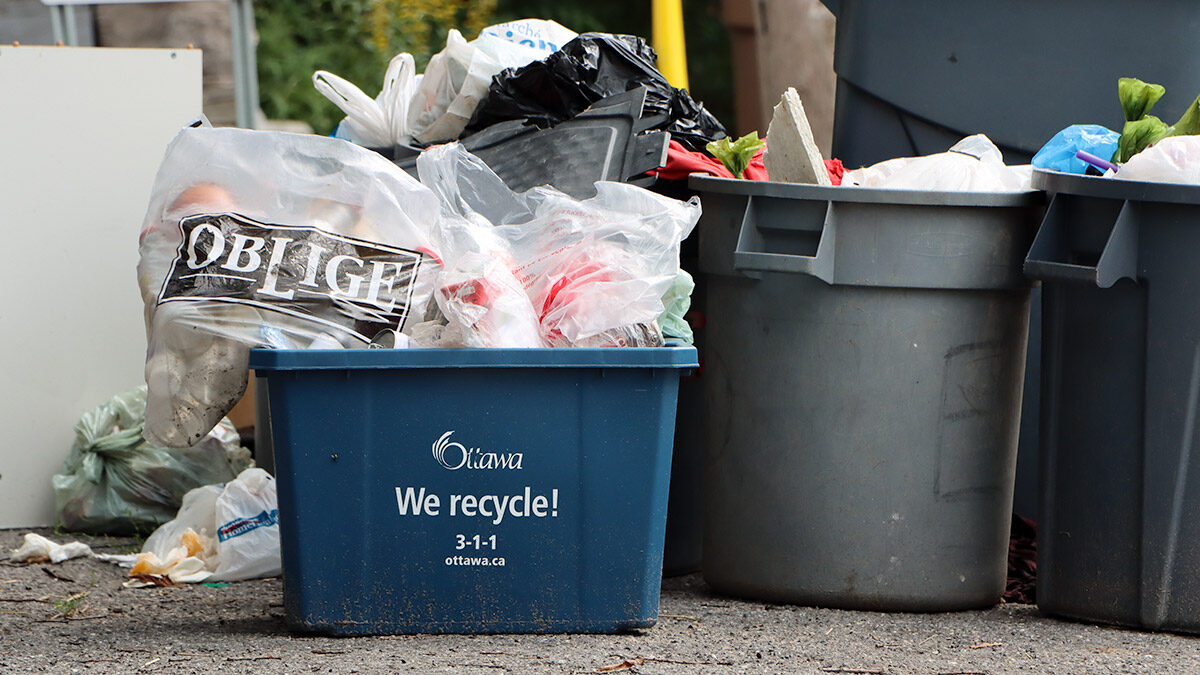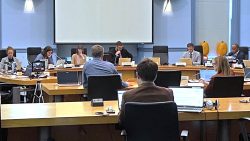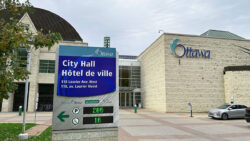In a bid to alleviate stress on the Trail Road Landfill, Ottawa city council has approved a Solid Waste Master Plan.
The landfill is quickly filling up and is estimated to reach capacity by 2035. A new landfill could cost almost $600 million, according to the city.
The new city plan spans the next 30 years and outlines some 50 actions intended to decrease the amount of waste going to the landfill and extend its life to 2049.
With Ottawa’s population expected to reach 1.4 million people by 2046, a population increase will lead to an increase in waste.
The city’s upcoming limit of three items for waste collection is one aspect of this initiative. The city’s green program will cover all apartments by 2027.
The new plan also includes maximizing reduction and reuse of waste; an expanded Take It Back! program; more repair cafes; a food waste reduction strategy; cutting waste at special events and more waste diversion at city facilities, parks and public spaces.
The overall plan aims to build a zero waste culture in the city.
These actions will help reduce pressure on the landfill, and give the the city time to explore new ways to manage waste, such as a waste-to-energy incinerator or a mixed waste processing facility.
Staff will immediately begin working on the action items set out for the first year of the plan.
Council also pushed back a motion regarding a ban on organic waste in landfills to the next meeting in two weeks.
The motion would see River Ward Coun. Riley Brockington, who was not present Tuesday, advocate for such a ban on a provincial level.
Kanata North Coun. Cathy Curry told the meeting she believed it was unprecedented for a single councillor to advocate to the provincial environment ministry.
In other garbage matters, Beacon Hill-Cyrville Coun. Tim Tierney said he has been receiving many emails concerned about a potential clear bag garbage program.
“There was some confusion … about how we’re going ahead with our waste program.”
He said that the proposed clear bag system is to be put on hold until 2027, when a new council will be in office.
“I think that’s going to be one of those hot potato issues, about clear bags or not,” he said.
Rideau-Jock Coun. David Brown stressed the importance of being prepared and informed should council move to introduce a waste-to-energy incinerator in the future. This would involve connecting with provincial officials and other municipalities about their waste systems, and researching previous studies and environmental assessments regarding incinerator options as part of the feasibility study.
“It’s work that can be done up front. It’s a clear direction. I don’t want to hear next year when we vote on incineration that it’s going to take five years for us to work out with the province what we can use,” he said. “If we go that way, I want us as a city to be ready to go when that vote happens.”
After the vote Capital Ward Coun. Shawn Menard, chair of council’s environment committee, thanked council and staff and said: “We now have extra landfill life that’s going to come as a result of all this work.”




